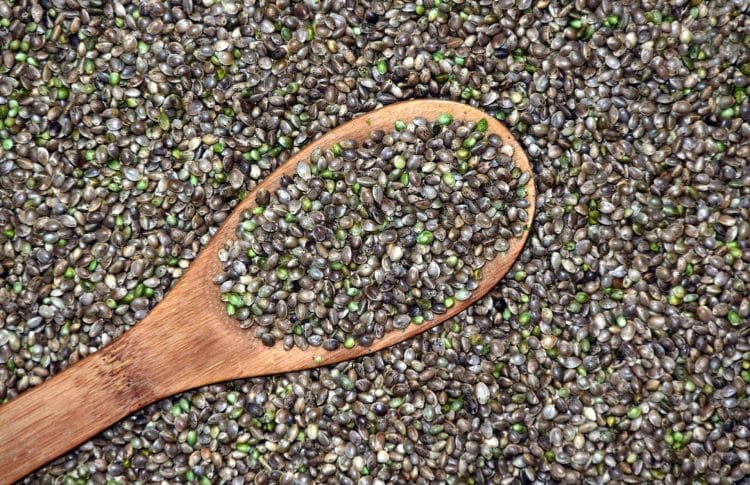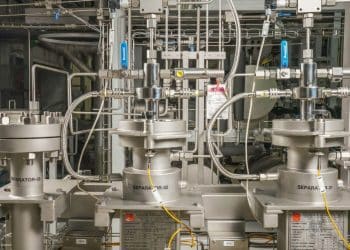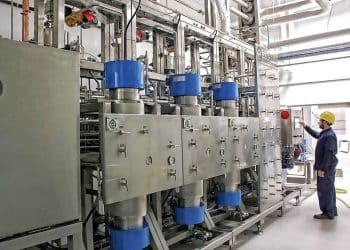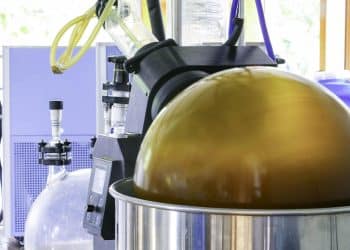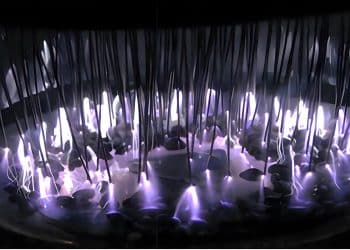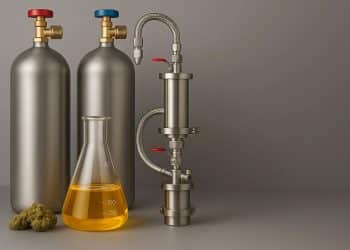Most extractors of Cannabis sativa L. are familiar with the phytochemical potential of feminized flowers. But cannabis/hemp seeds are treasures in their own right. Hempseed oil is rich in minerals, contains all nine essential amino acids, and features an ideal ratio of omega-6 fatty acid linoleic acid to omega-3 fatty acid α-linolenic acid. [1] Hempseed oil may very well become a major household superfood. But it must first be extracted.
When converting these super seeds into oil, preservation of nutrition and quality are paramount. This is best achieved with supercritical carbon dioxide (sCO2) extraction. The challenge is that a lack of solubility in sCO2 and subsequent pressure requirements reduce mass yields and increase production costs compared to extraction with organic solvents at atmospheric conditions. In 2019, Grijó and colleagues set out to determine how pressurized n-propane compares to sCO2 in terms of chemical and physical qualities of extracted hempseed oil. [2]
CO2 reaches a supercritical state at 7.38 megapascal (MPa) and 31.06°C, while n-propane requires 4.25 MPa and 96.70 °C. The researchers conducted four extractions with sCO2, namely 40°C and 60°C at 30 MPa and 40 MPa. These extraction conditions required 240 minutes each.
For n-propane, researchers dialed in five conditions, namely 40°C and 60°C at 6 and 10 MPa in addition to 50°C at 8 MPa. Propane required 30-minute extraction runs. The researchers also performed a conventional extraction operation using hexane and isopropanol at atmospheric conditions for comparison.
sCO2 and n-propane extractions preserved the omega-6 to omega-3 ratio, but neither reached the mass yield levels of conventional organic solvents. However, smaller amounts of n-propane were required to achieve comparable yields with sCO2. Interestingly, the milder pressure conditions of n-propane reduced the quantified acidity of the oil extract. The n-propane extracts also possessed increased levels of tocopherols and β-carotene. Because much lower pressures were required, the study authors highlighted lower operating costs for n-propane. They concluded that “pressurized n-propane is an interesting alternative solvent to obtain the oil of hemp seeds in relation to supercritical carbon dioxide and conventional technique.” [2]
References
- Rodriguez-Leyva, Delfin, and Grant N Pierce. “The Cardiac and Haemostatic Effects of Dietary Hempseed.” Nutrition & Metabolism,7, no. 32, 2010, doi:10.1186/1743-7075-7-32. Journal Impact Factor = 2.518, Times Cited = 17 (ResearchGate)
- Grijó DR, et al. “Hemp (Cannabis sativa L.) Seed Oil Extraction with Pressurized n-Propane and Supercritical Carbon Dioxide.” The Journal of Supercritical Fluids, vol.143, 2019, pp.268-274. Journal Impact Factor = 3.481, Times Cited = 2 (ScienceDirect)
